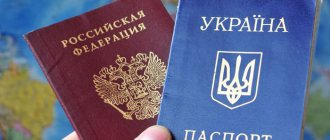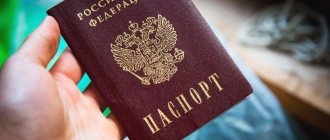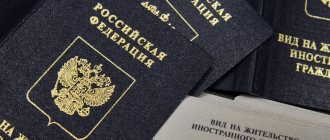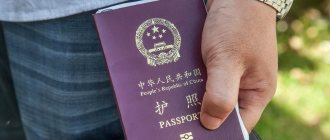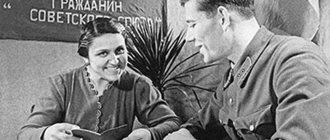What is the law of soil
According to statistics, the main way to acquire citizenship in all countries is through affiliation or acquisition of citizenship by birthright. This method involves acquiring citizenship by right of blood or by right of soil. The first option involves the possibility of obtaining citizenship of the country for those who have common racial and linguistic features with the main nation of the country. A typical example is Israel.
The right of soil makes it possible to become a citizen of the country in which the child was born. The civil status of the parents is not taken into account in any way. The USA can serve as an example. With this approach, renouncing citizenship causes great difficulties. In modern Russia, the principle of combining both rights still applies when establishing citizenship. Although citizenship based on the principle of blood is dominant.
New law in the Russian Federation
It is no secret that today in Russia there are all the signs of a demographic crisis. Some experts believe that this situation can be corrected by the mass relocation of people to the country from abroad. The emphasis is on citizens of the CIS. But, according to the country's leadership, to obtain Russian citizenship, applicants have to bypass too many bureaucratic obstacles. Therefore, an opinion arose about the need to introduce a new Russian law on obtaining Russian citizenship.
In March 2021, a new bill from Konstantin Zatulin was submitted to Parliament for consideration. The main idea of the bill is a proposal to classify as native speakers of the Russian language (for whom a simplified regime for obtaining Russian civil status applies) everyone who was born in territories that once belonged to the Soviet Union and even the Russian Empire. That's not all. It is assumed that those who were born in another country, but whose direct ancestors were born in the USSR, will also acquire the right to citizenship.
In addition, it is proposed to abolish the requirement for such applicants to renounce existing citizenship, since for many residents of neighboring countries such an opportunity is almost zero. For example, for those with Ukrainian citizenship for obvious reasons. However, the Duma has not yet adopted a law on obtaining citizenship by right of soil. According to Dmitry Peskov’s statement, it is clear that the position of the Russian Government on this issue has not yet been fully formed.
The main disputes are around the supposed dual citizenship, since its presence can lead to problems in the field of property law. In addition, many legislators and public figures fear that the level of knowledge of the Russian language among new citizens of the Russian Federation will be very low. After all, monitoring the testing is very problematic. Therefore, it is difficult to say whether the law on citizenship by right of soil will be adopted already in 2021. And if so, then in what version.
The first stage of obtaining status in the Russian Federation
Before contacting the competent authorities, it is necessary to determine the motives that prompted you to apply for citizenship. It is this question that determines further actions. To submit an application for acquisition of citizenship, you must make an appointment with the territorial body of the Ministry of Internal Affairs of the Russian Federation.
The applicant can make an appointment on the official website of the Ministry of Internal Affairs of Russia online or receive a ticket for an appointment with a specialist on the day of the visit.
When registering data, you must ensure that the data on your identification document matches the data specified when registering online. You do not need to take an additional coupon on the day of your appointment.
Reference! Outside the Russian Federation, issues of obtaining citizenship are regulated by the diplomatic mission or consular office of the Russian Federation. Consideration of applicants' applications is carried out according to the subject's operating hours.
Grounds for obtaining citizenship
Today, acquiring Russian civil status is a multi-stage procedure extended over time. You can apply for it on a general basis or on a simplified basis. Most applicants go through the initial process of obtaining a temporary residence permit, then a residence permit, and then Russian citizenship. And then only subject to certain requirements for age, knowledge of the Russian language, material income, etc.
With a simplified scheme, it is possible to apply for the acquisition of citizenship, bypassing the stage of temporary residence permit, with a reduced period allotted for a residence permit. The basis for such a scheme is birth on the territory of the RSFSR, Russian citizenship of close relatives, large investments in the economy of the Russian Federation, or recognition of the applicant as a native speaker of the Russian language.
Common to all persons applying for Russian citizenship is the need to renounce their current citizenship (with very rare exceptions) and the obligation to prove their sufficient knowledge of the Russian language (either by passing a test or providing educational documents received in the USSR or in Russia). In the current situation, for many foreign citizens and stateless persons, the question becomes relevant: if the new law is adopted, then how to obtain Russian citizenship by right of soil?
To do this, the applicant will need to prove that he or his direct ancestors were born within the borders of the USSR or the Russian Empire. You will also need to pass a Russian language proficiency exam. Another innovation will be the absence of the need to renounce existing citizenship.
Obtaining Russian citizenship by right of soil - preliminary provisions and conditions for participation in the program
Acquiring citizenship is the acquisition by a foreign citizen or stateless person of the status of a Russian citizen in accordance with the legislation of the Russian Federation.
Art. 11 of the Law on Citizenship of the Russian Federation “Grounds for acquiring citizenship of the Russian Federation” names the grounds on which it is possible to acquire citizenship of the Russian Federation:
a) by birth (acquisition of citizenship by birth means that a person’s civil connection with the state arises from the very fact of his birth. The date of acquisition of citizenship is the date of birth). Filiation is the acquisition of citizenship by birth. The law is based on:
– the principle of “right by blood” (place of birth is not important and both parents or a single parent have Russian Federation citizenship at the time of birth; place of birth is not important and one of the parents has Russian Federation citizenship at the time of birth, and the other is stateless or declared missing, or its location is unknown)
– the principle of “right of soil” (if parents living on the territory of the Russian Federation are foreigners or stateless persons at the time of the child’s birth, the child becomes a citizen of the Russian Federation when he is born on the territory of the Russian Federation, and the states of which the parents are citizens do not provide him with their citizenship; a child located on the territory of the Russian Federation, whose parents are unknown, becomes a Russian citizen if the parents do not show up within 6 months from the date of his discovery);
– or both principles are used: “ right of blood ” and “ right of soil ” (if one of the parents at the time of the child’s birth has Russian citizenship, and the other parent is a foreigner, the child becomes a citizen of the Russian Federation, provided that he was born on the territory of the Russian Federation or if otherwise In this case he will become stateless.
b) as a result of admission to citizenship of the Russian Federation, it presupposes the existence of a formalized procedure and the fulfillment by those wishing to obtain citizenship of a number of legally established requirements. This does not mean that anyone who submits an application to the competent state can become a citizen of the Russian Federation. organ. Granting citizenship is a right of the state
, which it applies if it meets certain
special conditions
: the presence of the required period of residence in the country and ownership of the state.
language, as well as the availability of a source of livelihood. Naturalization (acceleration) is a procedure for acquiring citizenship that is permissive in nature, where the applicant for admission to the citizenship of the country must satisfy a number of conditions. Foreign citizens and stateless persons (adults and capable) can apply in accordance with the general procedure , provided that: a) they live in the territory. Russian Federation for at least 5 years; b) undertake to comply with the Constitution and laws of the Russian Federation; c) have a legal source of livelihood; d) renounced their previous citizenship; d) speak Russian. Or in a simplified manner without complying with the requirement of 5 years of residence in the territory.
RF for next persons: a) having at least one parent - a citizen of the Russian Federation living in the territory. RF; b) citizen of the former USSR. Also, the simplified procedure applies to compatriots, WWII veterans, children of Russian citizens; c) as a result of restoration of Russian citizenship for former Russian citizens who have lived in the country for at least 3 years. Renaturalization – restoration of citizenship (re-rooting). Restoration cannot be used by former citizens of the RSFSR, a republic that was part of the USSR;
d) on other grounds provided for by this Federal Law or an international treaty of the Russian Federation related to the choice of citizenship when changing state status. ownership of the territory under other international treaties of the Russian Federation. Option is the choice of citizenship by people when changing the borders of contracting states.
When receiving Russian citizenship, as well as during restoration, discrimination against a person is excluded depending on origin, social status, attitude to religion and other factors.
Admission and restoration of Russian citizenship will be denied to persons who violate the laws of the Russian Federation (they create a threat to the security of the state, were expelled from its borders, used false documents, etc.).
52. Grounds and procedure for termination of Russian citizenship.
Termination of Russian citizenship is possible only on the basis of the voluntary expression of will of a citizen of the Russian Federation. Termination of citizenship on the initiative of government bodies of the Russian Federation is not allowed, regardless of the citizen’s commission of illegal actions, permanent residence abroad or other circumstances. Termination of citizenship means the loss of all rights belonging to a citizen (in particular, the right to vote and be elected, to hold positions in the civil service). However, according to the Constitution, there is a list of rights that belong to everyone: the right to life, to freedom and personal integrity, freedom of thought and speech, private property, etc. These rights are inalienable and are not lost due to the termination of Russian citizenship.
The Citizenship Law provides for the following grounds for its termination :
1. Renunciation of Russian citizenship on the basis of a voluntary expression of will for persons: a) living in the territory. Russian Federation (carried out in accordance with the general procedure ); b) those living in the territory of another state who are citizens of the Russian Federation (also for persons under 18 years of age, one of whose parents has a different citizenship) and wishing to leave it (carried out in a simplified manner ). Expatriation is a free exit from citizenship of a country in the absence of debts to the state and its citizens.
2. Termination of Russian citizenship for other reasons is associated with both a change in state status. belonging to the territory (as a result of an option - the choice of another citizenship when changing the State border of the Russian Federation), and on other grounds provided for by the law on citizenship or an international treaty of the Russian Federation.
The legislation provides grounds for canceling decisions on issues of Russian citizenship if it is established that this decision was made on the basis of forged documents or knowingly false information submitted by the applicant. This fact must be established in court.
Other ways to acquire Russian citizenship
The legislation of the Russian Federation provides for several ways to obtain the status of a Russian citizen. Naturally, the majority receive Russian citizenship by birth. That is, when a child born has one or both parents who have Russian citizenship, or if the child has not received citizenship in the Russian Federation, the child will become stateless. For others, the following methods of acquiring Russian citizenship are provided:
- in general order;
- in a simplified manner;
- restoring citizenship.
If a citizen does not have any benefits for the accelerated acquisition of citizenship, then obtaining citizenship will take at least 8 years, during which he will have to purchase a temporary residence permit and residence permit. Some people are luckier and have a reason to become the owner of Russian citizenship using a simplified, much less time-consuming scheme.
In recent years, the most popular way has become to obtain Russian citizenship under the program for the resettlement of compatriots. It just refers to the simplified method. If a citizen is involved in this program, then upon resettlement he can count on many benefits. And now, it will probably become possible to simplify the acquisition of Russian citizenship by right of soil.
Reasons for refusal
How can a child obtain Russian citizenship?
There is a possibility that, instead of acquiring citizenship, a person is informed that he does not have the right to apply for the desired passport, despite knowledge of the language, available documents, and the principle of blood and soil. This happens in seven cases defined by Art. 16 Federal Law “On Citizenship of the Russian Federation” of 2002:
- The migrant is a supporter of a violent change in the constitutional system in the Russian Federation, and his actions threaten the security of the country.
- In the five years preceding the application for restoration of citizenship, at least one deportation beyond the borders of the Russian Federation on the basis of federal legislation was recorded.
- The applicant used forged documents and provided them to the migration service, or the information he provided about himself turned out to be untrue (deliberately false).
- Citizens serving in the troops of another state or who are members of the security and law enforcement services of that country, as a rule, cannot apply for a Russian passport. An exception is possible only if it is provided for by an international treaty.
- The reason for refusal may be an unexpunged or unexpunged conviction for an intentional crime committed in Russia or for one on the territory of other states, which is recognized as a similar unlawful act on the basis of federal law.
- If criminal prosecution is carried out on the territory of Russia or abroad, carried out by the relevant authorities for crimes that are recognized by the legislation of the Russian Federation and other states. This restriction is in effect until a conviction is reached or until the judge makes a decision in the criminal case.
- Those sentenced to imprisonment and serving a sentence for crimes committed by a court do not have the right to apply for restoration of Russian citizenship. The likelihood of such an attempt will appear only when the sentence ends.

